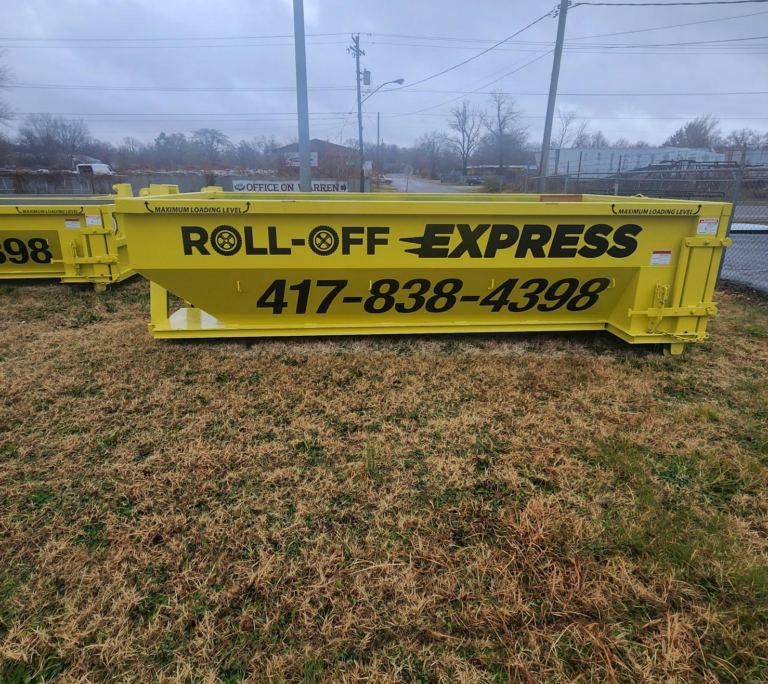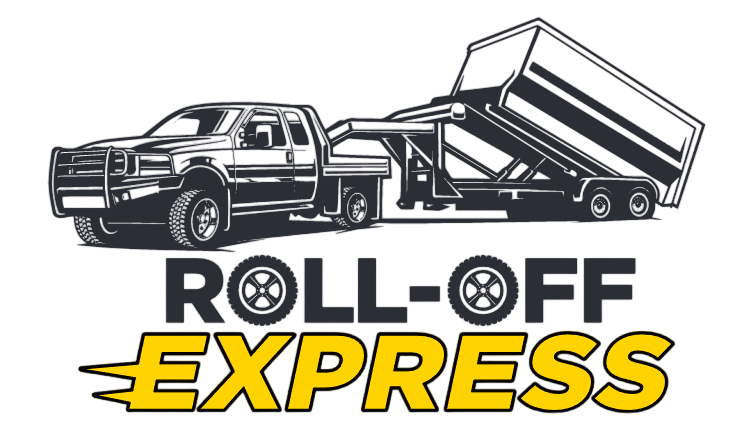

Many homeowners are concerned about the potential damage a roll-off dumpster rental might cause to their driveways. This article provides essential guidance on how to safely use dumpster rental services, ensuring that your concrete or asphalt driveway remains intact.
There’s a range of dumpster options available, including roll-off containers, rubber-wheeled trailer dumpsters, and trailer dumpsters. The weight of these dumpsters varies, with some specifically designed for bulkier items and larger-scale projects.
For comprehensive details on the various dumpster styles and their specific uses, please refer to ‘The Different Types of Dumpster Styles’.
The impact of a dumpster’s weight on your driveway is an important consideration. Concrete driveways generally tolerate heavier loads compared to asphalt driveways. Selecting the right type of dumpster service, be it for home renovations or construction debris, plays a crucial role in avoiding damage to your driveway’s surface.
For more information on the various driveway surface types, explore the article ‘Top 5 Driveways That Last the Longest.’
Asphalt driveways need extra care when positioning dumpsters. The steel wheels on roll-off dumpsters can lead to indentations or cracks, particularly in hot weather. Choosing a rubber-wheeled trailer dumpster is an effective alternative to reduce this risk.
Additionally, the type of waste you plan to dispose of in the rental dumpster is an important factor. Disposing of heavy materials, such as concrete or bricks, adds considerably to the dumpster’s total weight, which in turn increases the likelihood of causing damage to your driveway.
It’s important to choose a well-regarded dumpster rental company. Seek out services known for their reliability and customer satisfaction. A trustworthy company will assist you every step of the way, ensuring you select an appropriately sized dumpster and are clear about its weight limits.
Implementing the right precautions is key. Opt for dumpsters equipped with rubber wheels to minimize driveway damage. Additionally, pay attention to where the dumpster is placed on your driveway. It should be on a flat surface, ideally in a shaded area or on stable concrete to prevent issues with soft ground.
Ensuring compliance with legal requirements for dumpster permits is essential, particularly for longer rental periods or specific waste types. Your dumpster rental provider should offer guidance on how to obtain these permits.
For extended projects like construction or major cleanouts requiring long-term dumpster use, consider the overall weight and the potential for damage to your property over time.
For advice on selecting the ideal dumpster rental service, be sure to read the article ‘How to Choose a Dumpster Rental Company’.
Prior to the arrival of the dumpster, it’s important to evaluate the condition of your driveway. Check for any existing cracks or weak areas, particularly in asphalt driveways during warmer weather. Determine the most suitable spot for the dumpster, taking into account ease of access and the container’s weight.
To safeguard your driveway, consider placing rubber mats or plywood boards beneath the dumpster. This strategy helps evenly distribute the weight and prevents potential stress fractures, which is especially crucial for heavier dumpsters.
For additional protection on an asphalt driveway, using a wheel stop or steel feet can enhance the stability and safety of the dumpster, especially if it’s a large one.
If there’s substantial trash or debris on your driveway, clearing it before the dumpster’s arrival is advisable. This preparation step promotes a safer and more effective waste removal process.
For detailed guidance on preparing your driveway for a dumpster delivery, read ‘4 Tips for Protecting Your Driveway When Using a Dumpster’.
Selecting the ideal location for your dumpster is of utmost importance. Ensure it is situated in a spacious area with a clear path for the truck to navigate without harming any structures. When renting a residential dumpster, take into account the condition of your driveway and the potential for damage from heavy items.
When loading the dumpster, it is essential to evenly distribute the weight. Avoid overloading one side and strategically place heavy appliances and materials. Respect the designated fill line to prevent unnecessary weight and stay within the weight limit.
Properly managing the weight distribution inside the dumpster is crucial. For a heavier dumpster, it is advisable to fill it in layers to prevent uneven weight distribution, which can lead to driveway damage.
For substantial amounts of trash, you may require larger dumpsters, but keep in mind that larger dumpsters pose a greater risk to your driveway. Always strike a balance between dumpster size and the expected volume of waste.
It is essential to verify whether you need any dumpster permits by consulting local authorities, especially for extensive projects or if the dumpster placement involves public areas like streets. Different cities may have distinct regulations governing street permits and construction dumpster usage.
Stay informed about potential damages, including property and structural harm. To minimize the risk of driveway damage, choose an appropriately sized container and avoid placing it on uneven surfaces.
If your driveway isn’t a suitable location for the dumpster, you may have to consider street placement, which typically necessitates obtaining a permit from local authorities.
For projects requiring a dumpster over an extended period, it is vital to fully comprehend the specific regulations and potential risks associated with prolonged placement, particularly concerning the type of waste and the overall weight.
To delve deeper into the topic of dumpster permits and their necessity, we recommend reading ‘Dumpster Permits: How to Get One When You Need It’.
Following the conclusion of your dumpster rental period, it’s important to conduct a comprehensive examination of your driveway. Look for any newly formed cracks or lingering debris. Guaranteeing the area’s good condition is a responsible way to conclude the rental process.
Take some time to assess your overall experience with the dumpster rental service. A successful project encompasses not only trash removal but also the preservation of your property’s integrity. Share your feedback with the dumpster company to assist them in enhancing their services.
After the removal of the dumpster, especially in cases of heavy dumpsters or extended placement, carefully inspect your driveway for potential long-term impacts such as indentations on the asphalt surface or stress fractures.
Ensure that any observed damage, if present, is documented and discussed with the dumpster rental company. This documentation can be valuable for future reference or in the event of any disputes.
Various types of dumpsters, such as roll-off containers and rubber-wheeled trailer dumpsters, exert differing levels of pressure on driveways. The weight of the dumpster, especially when laden with heavy items, significantly influences the potential for driveway damage. Concrete driveways generally withstand greater weight than asphalt driveways.
Opting for a reputable dumpster rental company guarantees tailored advice and services that match your specific requirements. This includes selecting the appropriate dumpster size and comprehending weight limits. Employing precautions like rubber-wheeled dumpsters is vital to safeguard your driveway surface, and proper placement on a level surface minimizes the risk.
Securing the necessary dumpster permits is imperative, particularly for prolonged rental periods or specific waste types. For extensive construction projects or significant cleanouts, it’s essential to factor in the total weight and the potential for driveway damage over time.
Prior to placing the dumpster, thoroughly assess your driveway to identify any pre-existing issues and determine the optimal placement location. Utilize protective measures such as rubber mats or wooden boards beneath the dumpster to distribute weight evenly and prevent damage, especially when dealing with heavy dumpsters.
The dumpster’s placement should allow for easy access while minimizing the risk of structural damage to the driveway. Diligently manage weight distribution within the dumpster to prevent uneven loading and potential driveway damage.
Always consult local authorities for any necessary permits, particularly when considering street placement or large-scale projects. Prioritize safety and remain aware of the potential for various types of damage. Choose an appropriately sized container to minimize risks.
Following the rental period, conduct a comprehensive inspection of your driveway for any new damage or lingering debris. Reflect on your experience with the dumpster rental service, taking into account both efficient trash removal and the condition of your driveway after the rental.
For extended rentals or when dealing with heavy dumpsters, carefully inspect your driveway for potential long-term impacts like indentations or stress fractures. Document any damage and communicate with the rental company for future reference or in case of disputes.
These key insights provide homeowners with a comprehensive guide to renting dumpsters, with a focus on safeguarding driveways while ensuring effective waste management.
Dumpsters cannot accommodate hazardous materials like chemicals, paint, asbestos, batteries, tires, and electronic waste. Regulations vary, so it’s crucial to consult your rental company for a comprehensive list of prohibited items to adhere to local laws and safety standards.
A 2-yard dumpster typically has a weight capacity of around 400 pounds, equivalent to approximately six standard kitchen-sized trash bags. This size suits small projects like room cleanouts or minor landscaping work. It’s essential to avoid overloading to ensure safety and avoid potential extra charges.
Generally, dumpsters do not feature drainage systems. They are designed for solid waste, not liquids. Liquid waste in a dumpster can lead to leakage and environmental concerns. It’s critical to keep dumpsters dry and dispose of only solid waste to comply with environmental regulations and rental agreements.
The best spot for a dumpster is a flat, level surface, such as a driveway or a parking lot. Ensure it’s accessible for both drop-off and pickup without obstructing traffic or pedestrians. Avoid placing it on soft ground or grass to prevent sinking and potential surface damage.
When choosing a dumpster, consider factors like your project’s size, the type of waste you’ll be disposing of, and the available space for placement. Consult a reputable dumpster rental company to determine the most suitable size and type of dumpster for your needs, ensuring it aligns with your project’s requirements and local regulations.

Roll-Off Express | LETS TALK TRASH | Dumpster Rentals